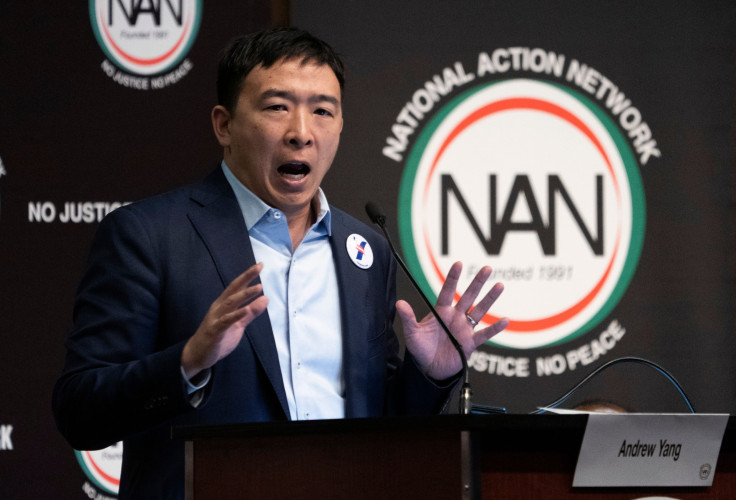Andrew Yang Wants To Create 'Department Of Technology' In Tech Policy Proposal
At the forefront of presidential hopeful Andrew Yang’s new tech policy proposal are the efforts to protect user data, fight disinformation, minimize technology’s negative health impacts, and give the government the resources to actually tackle the issues.
Compared to his opponents’ views which can be deemed as either too harsh or too mild on tech giants, Yang’s plan takes the middle ground and proposes to directly tackle the issues in several ways. These include classifying data as personal property, requiring platforms such as Facebook to share any algorithms that target users with content, and providing the government with tools to better understand and regulate the technology industry.
To fulfill these, Yang proposes amending the Communications Decency Act and creating a Department of the Attention Economy to regulate how companies can responsibly design products from smartphones to social media and games, a Digital Bill of Rights to protect user data and a cabinet-level Department of Technology based in Silicon Valley.
What’s interesting about Yang’s tech policy proposal is that it does not vilify the tech industry and it also takes serious tech issues head-on.
“Unfortunately, our government is unequipped to handle it,” Yang said. “ Recent hearings with tech CEOs like Mark Zuckerberg exposed the lack of basic understanding of technology by members of our Congress.”
If he succeeds in his presidential bid, Yang would technically have the power to create the necessary departments to fulfill his plans in regard to technology. In fact, some of the things he proposed are not all new.
In 1972, a Democratic-controlled Congress and a Republican president created the Office of the Technology Assessment (OTA) Act specifically to provide Congress the means to secure unbiased information concerning the various effects of technological applications.
Over the course of 23 years, the office produced 750 reports about technological and scientific impacts on various topics such as the military, environment, education, and healthcare. However, the office was dissolved in the efforts to reduce government spending and the Congressional Research Service and the Government Accountability Office tried to fill the gap that OTA left, producing only 157 science and technology reports in 16 years.
Clearly, there is already a foundation for Yang's plans, but history shows how budget issues proved to be its demise. Further, it is not impossible for the plan to face opposition from other officials with different views on how to tackle the issue.
That said, we are at a time when technology has become a major part of people's lives and tech giants are at the center of many issues of late, so it is possible that regulations regarding technology will be placed with higher importance than before.
“It's right to embrace technology and all the conveniences and advantages that come with its advancement, but we can ’ t do it at the cost of our humanity,” Yang said. “At the core of our technology use, needs to be our well-being and that of future generations. We owe it to ourselves to pursue a new way forward in this technology-driven era, while we still can.”

© Copyright IBTimes 2024. All rights reserved.












